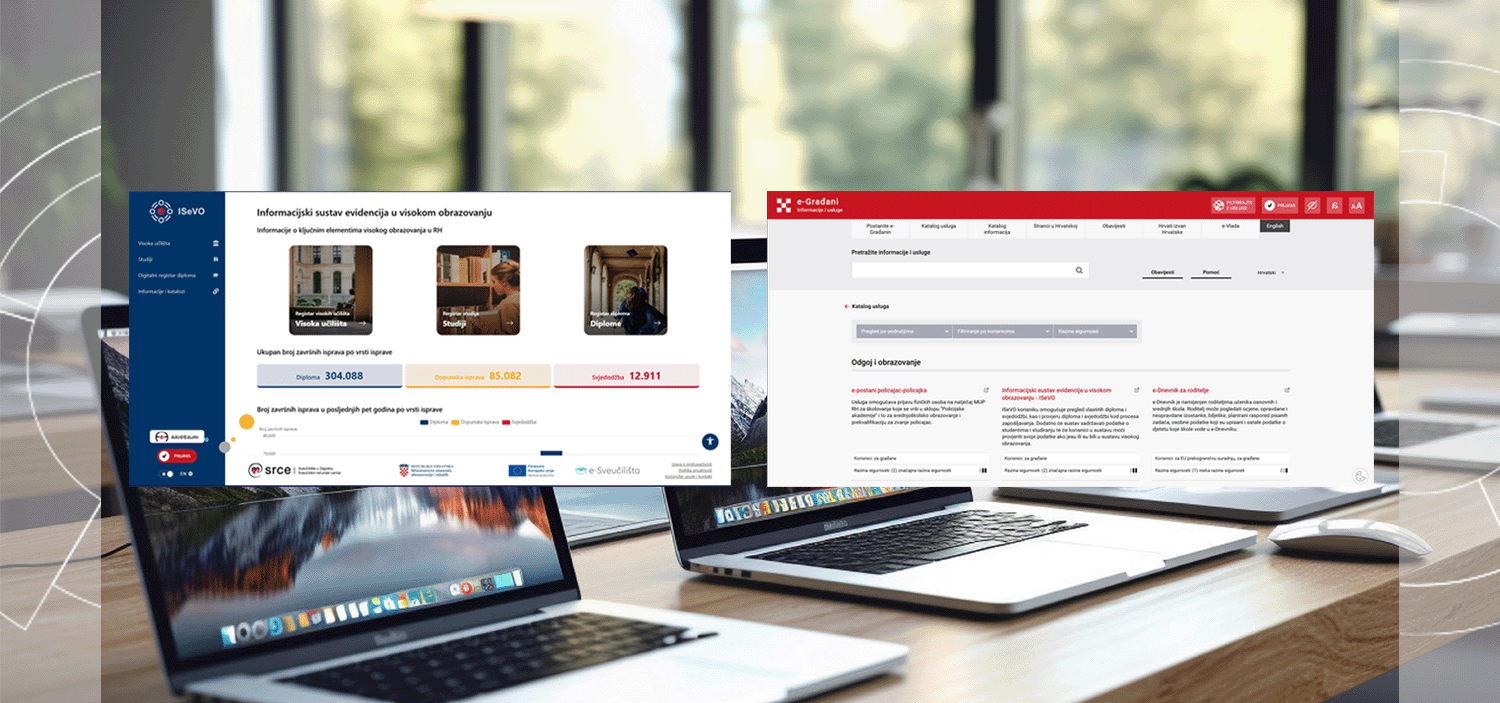The Digital Diploma Register, developed as part of the Information System of Higher Education Registers (ISeVO), has been integrated with the e-Citizens platform. Diplomas entered in the ISeVO system can now also be viewed through the e-Citizens portal.
Croatian citizens can log in to the Digital Diploma Register using one of the high-security credentials used in the e-Citizens system for authentication and view their diplomas in the Digital Diploma Register.
The Digital Diploma Register has been operational since January 1, 2024, as a module within the Information System of Higher Education Registers (ISeVO). From that date, higher education institutions have been required to issue diplomas and diploma supplements (final study documents) in both printed and digital form and to submit the digital documents to the Digital Diploma Register. Data collection is also underway for previously issued diplomas and certificates in the Republic of Croatia for the period from 1984 to the end of 2023. Higher education institutions have a two-year deadline from the establishment of the Register to submit these records.
By July 4, 2025, a total of 304,088 diplomas, 85,082 diploma supplements, and 12,911 certificates had been stored in the Digital Diploma Register. Of these, 160,492 are newly issued digital final documents (diplomas, certificates, or diploma supplements), and 241,587 are records of previously issued paper-only documents from the period 1984 to 2023.
Citizens can find the Digital Diploma Register in the catalog of e-services on the e-Citizens portal under the category Education or via the following link: https://visokoobrazovanje.hr/, where they can view their diplomas, if entered in the Register.
The information system currently includes the following modules: Digital Diploma Register, Higher Education Institutions Browser, Study Program Browser, User Administration, and Resource Management.
SRCE continues to work on the development of ISeVO, with completion planned by the end of 2025. Modules currently under development include the Student Records module and the Admissions Application and Results module. In the fall, development will begin on the Employee Records module for higher education institutions. Upon completion, ISeVO will serve as the central registry for core data on entities in the higher education sector in the Republic of Croatia.
In addition to providing standard user support, experts from SRCE regularly organize events to help users from higher education institutions better understand how to use ISeVO and to provide a platform for experience and idea exchange. Follow SRCE’s website to stay informed about upcoming events.


